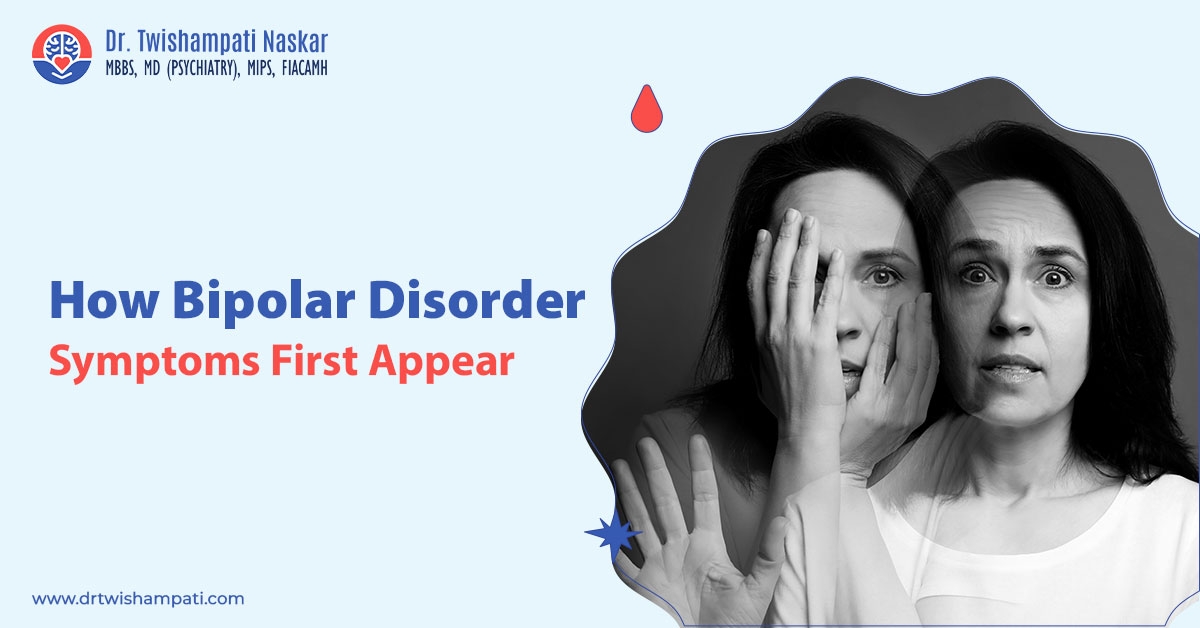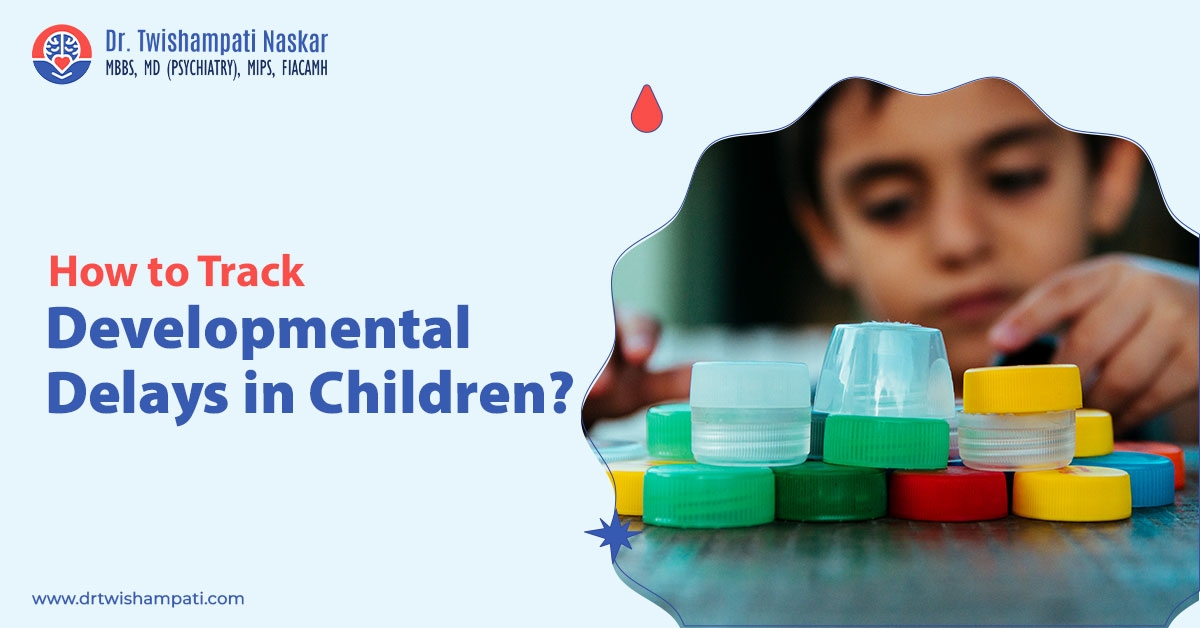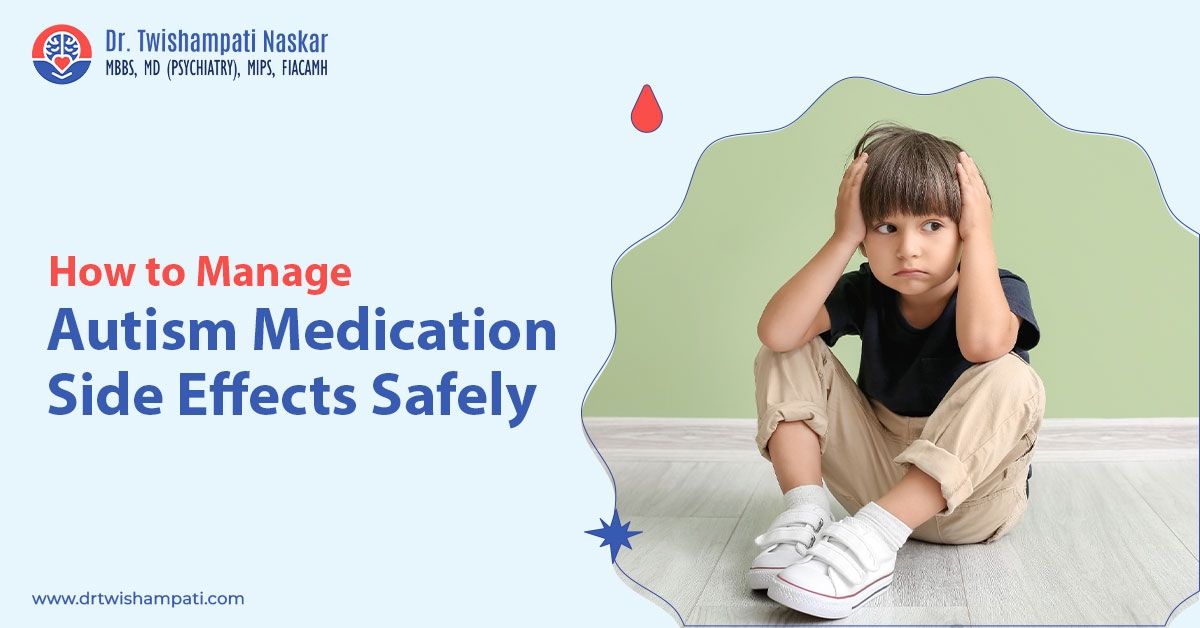Neurological disorders affect your nervous system hugely while affecting the normal functioning of your brain and nerves. In some cases, these neurological disorders can impact your personality, behaviour, thought patterns, and mood. These disorders fall under the category of neuropsychiatry and often create short and long-term effects on your mental health. If you suffer from any of these conditions then you must contact a reputed neuro psychiatrist in Siliguri like Dr. Twishampati Naskar without any delay.
An expert neuro psychiatrist knows the impact of brain conditions on your thinking patterns and behaviours. Contact our mental health professionals will help you to undergo a detailed neuropsychological evaluation that can detect the ways your mind is working and how it is impacting your cognitive functioning. A Neuropsychiatrist can understand your unique health needs to curate a specific treatment plan based on the severity, cause, and clinical presentation of the disorder.
Mental Health Disorders Treated By A Neuro-Psychiatrist
1. Depression
Depression is one of the most common mental health issues that have a potential impact on your central nervous system and can be effectively treated by a neuropsychiatrist. If clinical depression is left untreated for a long time then it can turn into major depression, which can drastically affect your life quality. Depression patients often experience cognitive changes that lead you towards cognitive dysfunction which includes memory impairments, concentration issues, and distractibility.
Symptoms:
- Loss of interest
- Irritability
- Headache
- Anger
- Trouble sleeping
- Overwhelming sadness
You may develop these symptoms of depression due to various causes such as traumatic life events, brain chemistry, underlying medical conditions, and genetics.
2. Seizures
A Neuropsychological Psychiatrist also plays the role of treating seizures which are caused by an uncontrollable or sudden burst of electrical activity inside the brain. As a result of this disorder, one can experience changes in consciousness levels, movements, feelings, and expression. Some of the common types of seizures are generalized and focal seizures, which may have prodrome, ictal, and postical stages. People often experience a different array of symptoms in different seizure stages that require urgent diagnosis.
Symptoms:
- Emotional changes
- Temporary confusion
- Cognitive impairment
- Loss of consciousness
- Uncontrollable jerking movements
- Staring spell
The most common causes that can trigger a seizure are active brain injury, low sodium levels, depression medications, brain infection, lack of sleep, and alcohol abuse.
3. Addiction
Whether you’re addicted to alcohol, gambling, illicit drugs, or nicotine, it can negatively affect your brain functioning. Addiction can overwhelm the pleasure circuits in the brain which can sometimes be permanent and chronic. A neuropsychiatrist like Dr. Twishampati Naskar can play a huge role in treating addiction to manage the dopamine flood created by the addictive substances. The doctor can help you stop the intense cravings and bad choices that you regularly make.
Symptoms:
- Not meeting work responsibilities
- Withdrawal symptoms
- Indulging in risky activities
- Lack of energy
- Behavioural changes
- Decreased coordination
Certain mental health conditions such as depression and bipolar disorder, genetic factors, and environmental factors can lead to the development of addiction or substance use disorder.
4. Cognitive-Deficit Disorders
Cognitive deficit disorders are a group of disorders that can lead to cognitive or intellectual disability. These disorders can impact your mental processes while affecting your experience, thinking patterns, and senses. Some of the intellectual functions that can be negatively impacted by these disorders are planning, reasoning, attention, judgment, perception, and language. Common disorders treated by our expert psychiatrist in Siliguri are Parkinson’s disease, dementia, Alzheimer’s disease, traumatic brain injury, amnesia, and posterior cortical atrophy.
Symptoms:
- Short or long-term memory loss
- Confusion
- Impaired judgment
- Improper motor coordination
- Identity confusion
- Poor decision-making
Some of the common causes of cognitive impairment are tumours, degenerative diseases, trauma, suffocation, brain injury, and infections.
5. Uncontrolled Anger
Uncontrolled anger or anger issues are another mental health issue that needs to be treated effectively by a neuropsychiatrist. It is essential to manage the anger and detect the triggers to control the impact of it on your physical and mental health. Some of the common impacts of uncontrolled anger include headache, anxiety, and high blood pressure which can also lead towards intermittent explosive disorder. If this condition is not treated properly then it can lead to various emotional and physical symptoms affecting your relationships, and professional, and personal lives.
Symptoms:
- Anxiety
- Tingling sensation
- Feeling overwhelmed
- Irritability
- Muscle tension
- Increased heart rate
In most cases, underlying mental health challenges are considered the main causes of uncontrollable anger such as OCD, depression, alcohol abuse, bipolar disorder, and grief.
6. Eating Disorders
You also need the assistance of a neuropsychiatrist if you’re suffering from eating disorders. These disorders can affect both your mental and physical health while changing your perspective towards food, shape, weight, and eating behaviours. If this condition is not treated properly then it can lead to severe complications such as substance use disorders, serious health issues, relationship problems, suicidal thoughts, and growth and development issues. Some of the common types of eating disorders are bulimia nervosa, anorexia nervosa, avoidant/restrictive food intake disorder, and binge eating disorder.
Symptoms:
- Hiding weight loss with baggy clothes
- Sudden weight loss
- Skipping meals
- Intensive exercise
- Constantly dieting
- Complaining about being fat
Genetic composition and biological factors such as changes in brain chemicals are found to be the main causes behind eating disorders.
7. Attention-Deficit Disorders
One of the most common neurodevelopmental disorders experienced by children that can have a significant impact on their mental health is attention-deficit disorder (ADHD). These disorders lead the children to indulge in impulsive behaviours while experiencing severe issues to pay attention. Common types of ADHD are Predominantly Hyperactive-Impulsive Presentation, combined presentation, and Predominantly Inattentive Presentation. The presentation and symptoms that the child is experiencing may change over time.
Symptoms:
- Forgetting things
- Daydreaming
- Difficulty communicating
- Taking excessively
- Making careless mistakes
- Unable to resist temptations
The common causes behind the development of ADHD are low birth weight, brain injury, premature delivery, tobacco usage during delivery, and exposure towards certain environmental factors.
8. Anxiety
Occasional anxiety is a common feeling that we all experience but people who are suffering from anxiety disorders often experience persistent and intense anxiety that can lead to panic attacks. The common types of anxiety disorders are generalized anxiety disorder, agoraphobia, selective mutism, phobias, separation anxiety disorder, and substance-induced anxiety disorder. If this condition is not treated properly with the guidance of a reputed neuro psychiatrist then the anxiety can lead to insomnia, depression, social isolation, suicidal thoughts, headaches, and poor life quality.
Symptoms:
- Increased heart rate
- Nervousness
- Feeling tired
- Trouble sleeping
- Hyperventilation
- Sweating
The probable causes behind anxiety can be certain medical causes such as irritable bowel syndrome, diabetes, respiratory disorders, heart disease, and withdrawal from substance use.
Treatments Offered By A Neuro-Psychiatrist To Address Mental Health Challenges
- Medications
The most effective treatment option recommended by a Neurocognitive Psychiatrist is medication. If the mental health disorders are leading to severe mood swings then the doctor will prescribe certain mood stabilizers that can make the mood issues less severe. On the other hand, antidepressants can also be recommended which can help you to control the symptoms of depression and anxiety.
There are certain mental issues that can cause memory problems which can be treated with cholinergic medications. These medications will make your neurons function effectively which can also aid in mental wellness. In some cases, antipsychotic medications can also be prescribed to manage the psychotic symptoms.
- Cognitive-Behavioural Therapy
Neuro psychiatrists are medical professionals who are experienced in providing various psychotherapeutic treatments and counselling sessions to control mental health disorders. One such therapeutic approach is cognitive-behavioural therapy which can help the doctor to identify the negative emotions triggering the mental issues.
Through this approach, the counsellor can also challenge and replace those negative thinking patterns with realistic and objective ones for a speedy recovery. The psychological distress can be relieved with this technique while enabling you to learn strategies for mindfulness and emotional regulation.
- Sleep Aids
Most patients suffering from neuropsychiatric disorders suffer from insomnia and other sleeping disturbances. In such cases, the neuro psychiatrist offers you the best sleep aids to recover from the sleeping issues. The doctor can prescribe you certain sleeping pills to make you sleep peacefully.
In addition to medications, certain CBT techniques can also be performed to overcome these conditions. Some such methods include relaxation methods, stimulus control therapy, light therapy, and sleep restriction methods. Paradoxical intention is another effective method to control anxiety and make you enjoy a sound sleep.
- Neurostimulation Techniques
Another type of treatment offered by the neuropsychiatrist to manage the chronic pain associated with mental health challenges is Neurostimulation techniques. This technique can help you recover from the neuropathic pain while offering you relaxation from the tension and cluster headaches.
This safe treatment approach often complements other psychotherapy and medication options while speeding the recovery process. The most effective types of Neurostimulation Techniques are transcranial magnetic stimulation, peripheral nerve stimulation, and magnetic peripheral nerve stimulation.
Contacting our well -known neuro psychiatrist in Siliguri will enable you to get the best psychiatric and psychological therapies along with effective medications for a complete recovery from the mental health challenges. These treatments offered by the medical professional will enable you to enhance your mood, brain function, and emotions for better mental and physical well-being.
Comments (0)





